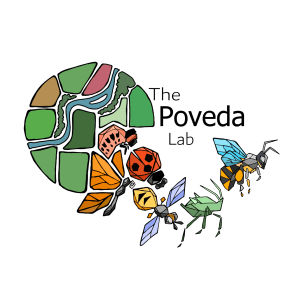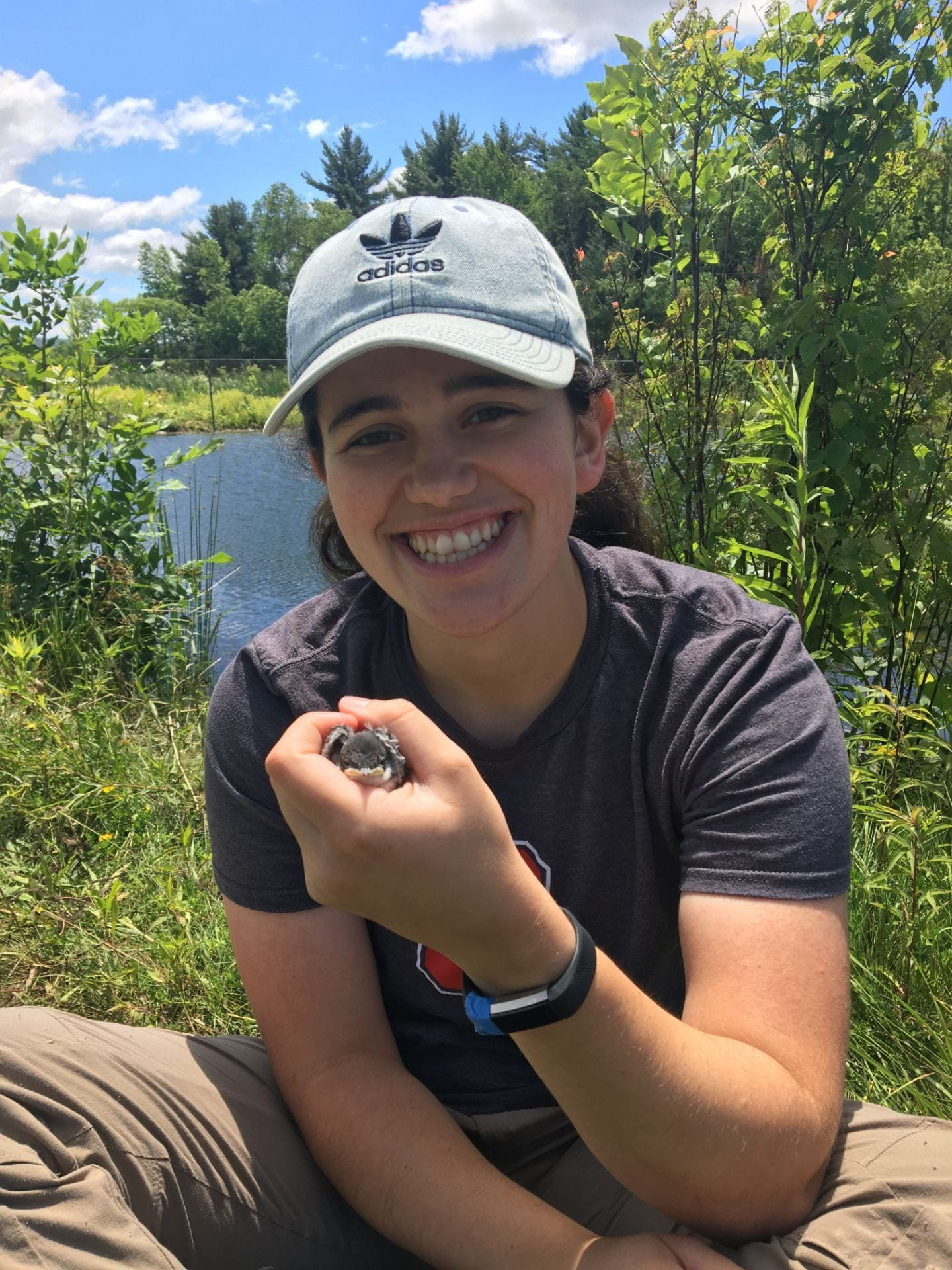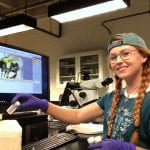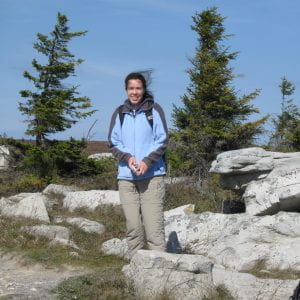Postdocs
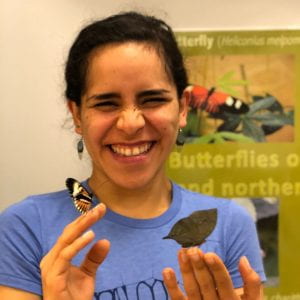 |
Laura Figueroa Current Position: Assistant Professor, Department of Environmental Conservation, University of Massachusetts, Amherst I am broadly interested in evaluating the role of human-induced stressors on ecologically important taxa and discerning how to effectively mediate those effects to promote biodiversity conservation and environmental sustainability. For my PhD in Scott McArt’s Lab here at Cornell Entomology I evaluated how bee pathogens are transmitted in plant-pollinator networks, evaluating the effect of landscape simplification on plant-pollinator networks and pathogen prevalence in diverse bee communities. I am interested in understanding how interacting stressors affect pollinator health. I previously held an NSF postdoctoral Fellow in Biology, advised by Katja and Lynn Adler at the University of Massachusetts, Amherst, and am now there as a new faculty member. |
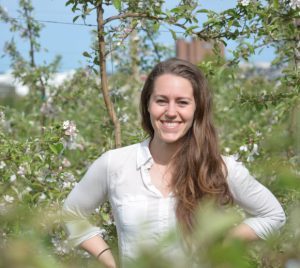 |
Heather Grab Current Position: Senior Lecturer of Hemp Science at Cornell University My research in the Poveda Lab focused on investigating the influences of landscape simplification on pollination and biological control services provided by wild insects to agriculture in NY. I addressed how biodiversity is lost from agricultural landscapes based on species functional straits and evolutionary history and plasticity can help species cope with environmental stressors like land use change. I am currently a senior lecturer of Hemp Science at Cornell, providing the best practices for the cultivation and processing of Cannabis and hemp to professionals. My research uses remote-sensing, large scale community datasets and advanced analytical methods to create data driven solutions for challenges at the interface of natural resource conservation and agriculture. |
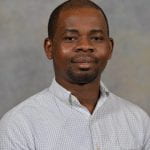 |
Adekunle Adesanya Current Position: Integrated Field Scientist at Corteva Agriscience My research in the lab was funded by the Atkinson Center for sustainability is a collaboration with the International Centre for Insect Physiology and Ecology (ICIPE) and addressed the fall armyworm (FAW) invasion in Sub-Saharan Africa. I addressed how agricultural landscape affects the biological control of FAW and how interactions among different biotic components of the landscape vary across trophic levels. The goal of my research was to apply knowledge from these adaptive process towards more environmentally friendly and sustainable pest management. |
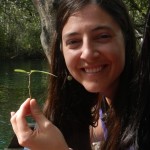 |
Susan Whitehead Current Position: Assistant Professor of Biological Sciences at Virginia Tech In the Poveda Lab, I worked on understanding the chemical mechanisms of apple resistance to some of its major fruit-feeding pests. In addition, I explored how the history of apple domestication, and in particular, breeding efforts focused on increasing yield, have affected fruit chemical defense. Broadly, my research interests center on the ecological mechanisms and evolutionary consequences of species interactions. In particular, I am interested in the role of chemistry in mediating interactions between plants and animals. I take an integrative approach that utilizes modern tools in analytical organic chemistry along with observational field studies, behavioral experiments, and laboratory bioassays. |
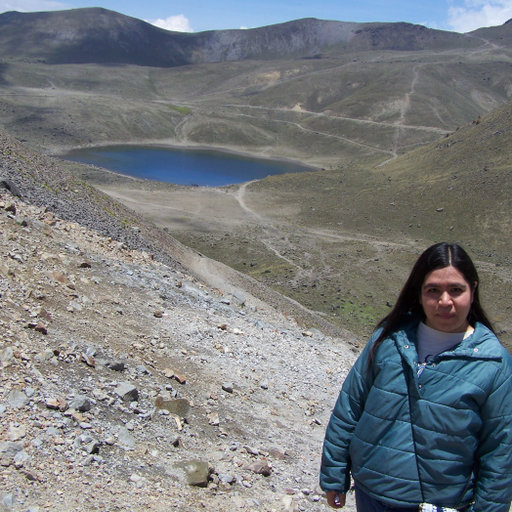 |
Etzel Garrido In the lab I investigated the exciting yet unexplored phenomenon of overcompensation to foliar and tuber herbivory in the cultivated potato Solanum tuberosum. My research interests lie in the evolutionary ecology of biotic interactions. Specifically, I was interested in the evolution of plant defenses (i.e., resistance and tolerance to herbivory) in different ecological contexts. Since the evolutionary trajectory of any trait is often not easily predicted from simple pairwise interactions, I focused on how plant defenses are subject to selection from a variety of community members, either directly or indirectly, including below- and above-ground interactions. I was also interested in modeling how the co-evolutionary dynamic between plants and enemies is mediated by the expression of induced plant defenses. |
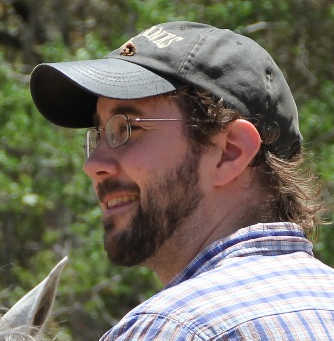 |
Christopher Stieha Current Position: Assistant Professor of General Biology, Botany, Population and Community Ecology at Millersville University In the Poveda Lab in collaboration with the Abbott Lab at Case Western, I developed mathematical models to understand the effects of various plant defenses on herbivore population dynamics and the feedback between the two systems as an attempt to use bottom-up processes to mitigate pest outbreaks. I also used statistical models to determine abiotic and landscape-level factors affecting pest populations and agricultural production. My research interests revolve around understanding how individual-level interactions, such as competition or herbivory, scale up to affect dynamics at the population, metapopulation, and landscape levels. I combine mathematical models and field experiments to develop, test, and refine predictions. |
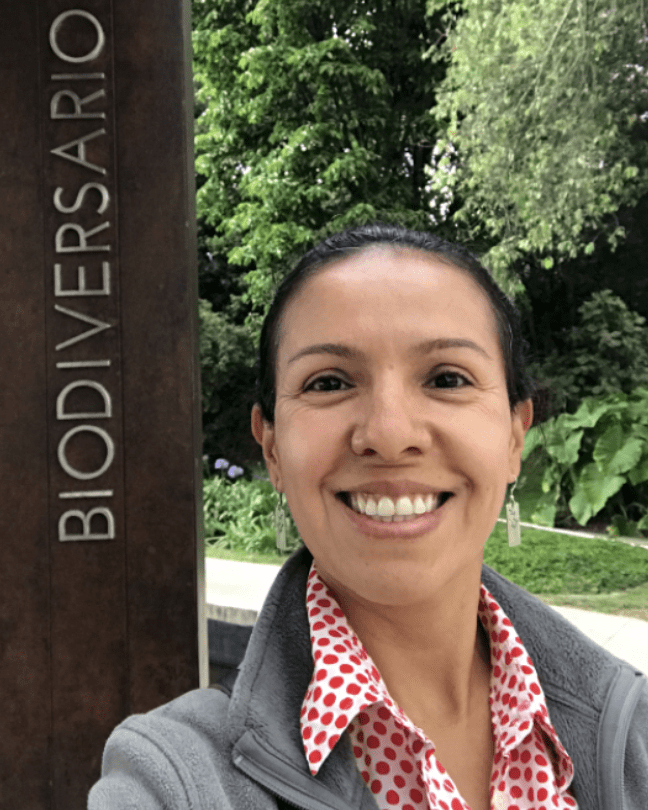 |
Paola Olaya-Arenas My research interests focus on understanding the effect of abiotic factors and landscape transformation on insect ecology in agroecosystems and urban environments. In Dr. Poveda’s lab, I worked on developing a risk assessment model using climate and landscape variables to monitor the abundance and occurrence of the seedcorn maggot in New York with the goal to prevent damage to insecticide-free corn seeds.
|
Graduate Students
 |
Hayley Schroeder Current position: Postdoctoral Researcher at the University of Massachusetts Intensive agriculture is pervasive on a global scale, often transforming complex, biodiverse natural landscapes into simplified monocultures. My research investigates how this landscape simplification and the resulting shifts in insect communities lead to changes in wild plant traits ranging from chemical and physical defenses to floral traits and self compatibility. I’m also passionate about science communication and educating the public about the value and fascinating biology of insects (and weeds!). I completed my Bachelor’s at the University of Georgia.
|
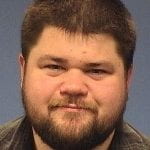 |
Tim Luttermoser Current position: Assistant Professor at Simpson College I have broad research interests in landscape ecology, community ecology, insect behavior, and agroecology. In the Poveda lab, my work focused on sustainable agriculture in Western Kenya using the push-pull system, an innovative agricultural system that exploits pest host-finding behavior to reduce pest damage and increase yield. In addition to analyzing landscape factors and pest behavior, I am also interested in the role of natural enemies in biological control. |
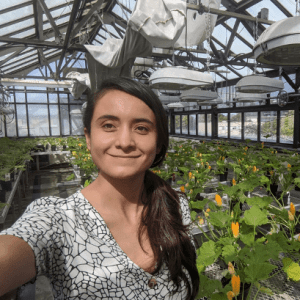 |
Diana Obregon I am broadly interested in contributing to deal with the trade-off between pollinator conservation and pest management in agricultural settings applying concepts of agroecology, landscape ecology and chemical ecology. In the Poveda Lab, I studied how the loss of natural habitat and pesticides are affecting bees and their pollination services. My field work was developed in Colombia studying stingless bees in fruit and cattle ranching farms and in the US studying squash crops and its pollinators.
|
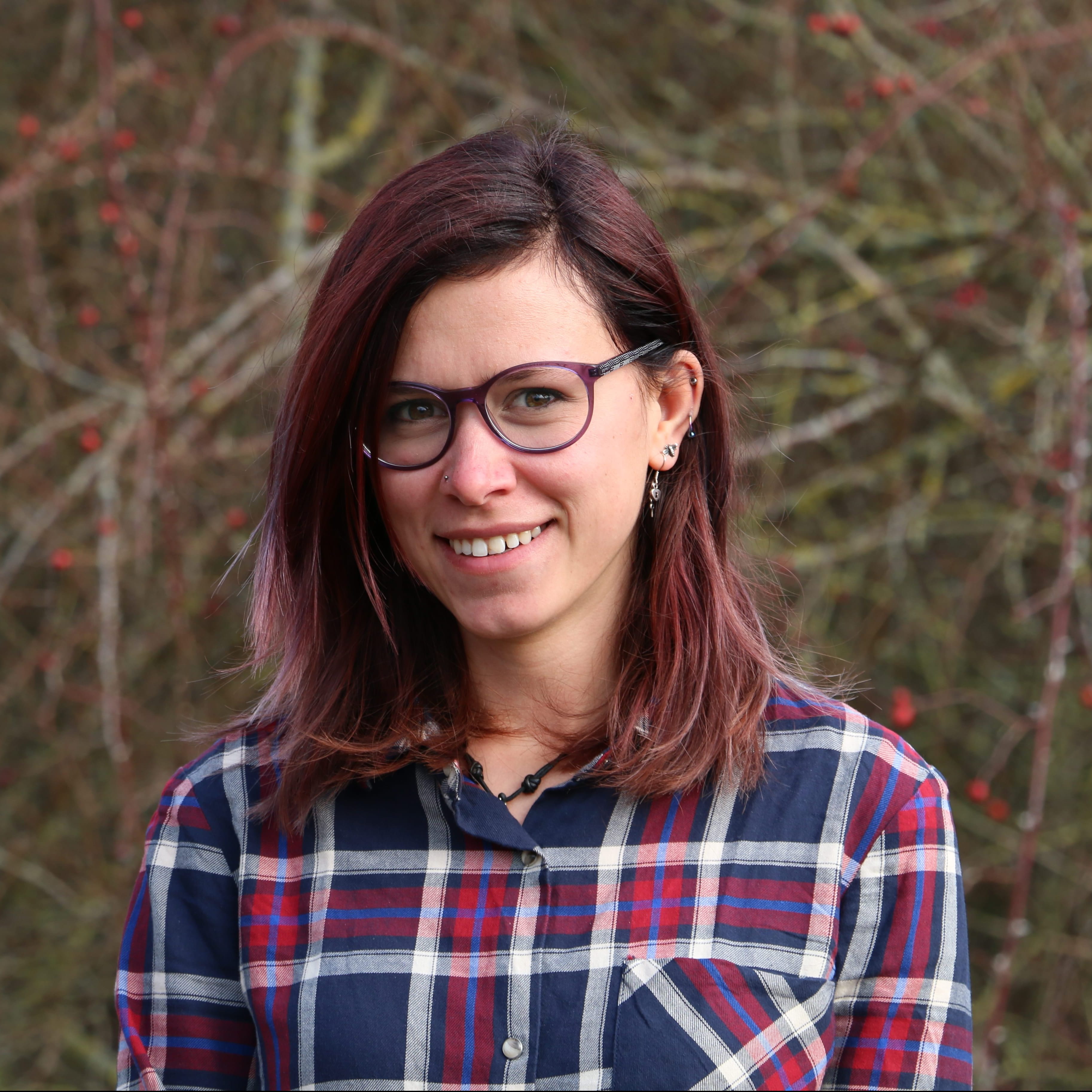 |
Cassandra Vogel I was a PhD student from the Netherlands currently based in Wuerzburg in Germany advised by Prof. Dr Ingolf Steffen-Dewenter and co-advised by Katja Poveda. I studied how landscape characteristics affects biodiversity important for ecosystem services on smallholder farms in Northern Malawi. I focused on how the uptake of agro-ecological schemes by farmers, such as intercropping practices, at different spatial scales across a landscape may compensate for the loss of biodiversity due to landscape simplification. My work was part of a much larger project that aimed to incorporate work by social scientists, GIS and policy makers to address issues within biodiversity conservation and food (in)security and will hopefully contribute to developing Malawi’s agriculture in a sustainable way.
|
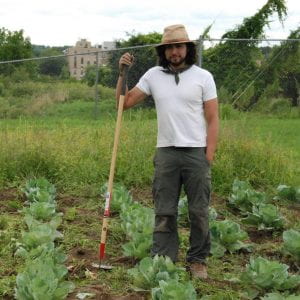 |
Ricardo Perez In the lab I used natural enemies and pest control services as a model for testing some basic ecological questions, about ecosystem services provided by arthropods in agricultural landscapes, such as: Does the level of biological control depend on diverse natural enemies assemblages, or is biological control largely provided by a small subset of functionally important species? Are multiple natural enemies complementary to each other or are they largely redundant? Is a high diversity of natural enemies a biological insurance against ecological disturbances? How do natural enemies in agroecosystems are influenced by local and landscape scale habitat availability and management? Besides the theoretical interest, these questions have significant practical implications for both conservation biology and agriculture. |
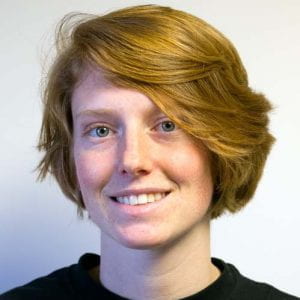 |
Mary Centrella Current Position: Director and Educator of the Pesticide Management Education Program (PMEP), Cornell Cooperative Extension I studied how human-driven changes to the environment impact populations of wild bees, which are important crop pollinators. I investigated how landscape simplification, pesticide toxicity, and diet breadth interact to affect semi-managed mason bees in apple orchards in upstate NY. My work aimed to develop management strategies in apple to enhance wild bee health. I also studied spatial and temporal ranges of mason bees on the Eastern Seaboard, work that provided insight on how landscape can potentially drive wild crop-pollinator decline and the impacts of non-native species. |
Technicians
Undergraduates
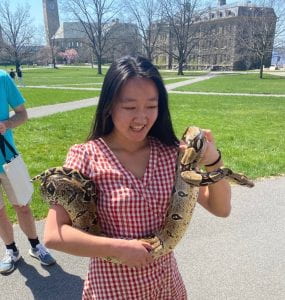 |
Angela Peng I completed my senior thesis in the lab in 2023, looking at how flea beetle herbivory is affected by the landscape composition from which the plant originates. In my free time, I enjoy hanging out with my rabbit, Blueberry. |
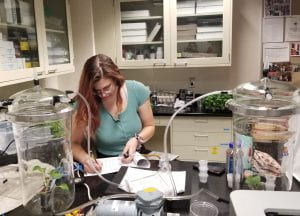 |
Elizabeth Viebranz |
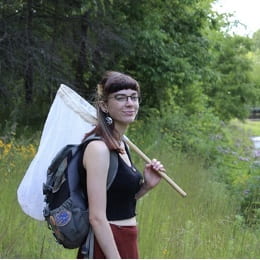 |
Nina Devine In the lab I sorted samples collected in Kenya to assist our doctoral student Tim with data analysis and worked on my own project tied to our Push-Pull experiments in Kenya, investigating how the body sizes and community composition of rove beetles changes with respect to landscape composition. |
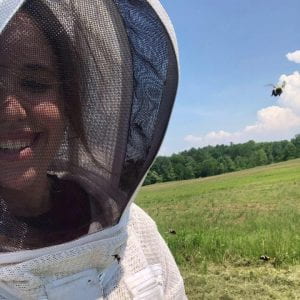 |
Olivia Miller |
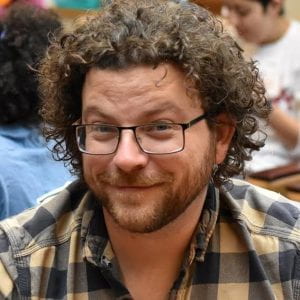 |
Patrick O’Briant Current Position: Master’s Student at Cornell University I worked with Tim Luttermoser focusing on a push-pull system in Western Kenya with the goal of reducing pest damage for subsistence farmers. I pursued a deeper understanding of the intricacies that play out at the landscape scale between organisms so that we might increase the productivity of agriculture in a sustainable manner. |
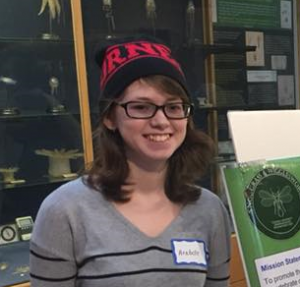 |
Arabelle Osicky
I was involved in different projects evaluating how landscape composition influences the functional trait composition of predator and herbivore communities and how those changes translate into ecosystem (dis)services provision. |
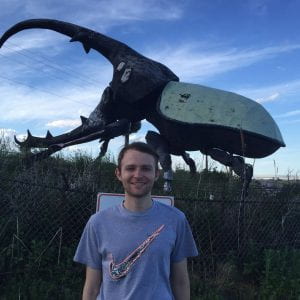 |
Anthony Polyakov
Current Position: Founder of Clickbug Media Anthony provided invaluable support on one of Ricardo’s dissertation projects exploring the effects of landscape composition on the taxonomic and functional composition of ground beetle communities in agricultural landscapes. |
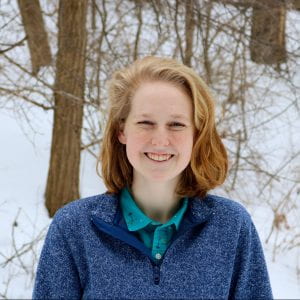 |
Ali Bergmann I joined the lab in 2017 to study pollinator health and plant-insect interactions with Heather. I investigated the effects of landscape complexity on bee body size and nutrition. |
 |
Rachele Weintraub
Rachele joined the lab in 2015 to do her honors thesis. Rachele graduated with a double major in Plant Science and Entomology. She is interested in plant-insect interactions, particularly in host-herbivore systems. Her research in our lab focused on the effects of nitrogen availability and plant phenology on the tolerance response of potatoes after they are subjected to herbivory. In the future, she hopes to discover more about plant-insect interactions in agroecosystems while pursuing her Ph.D. |
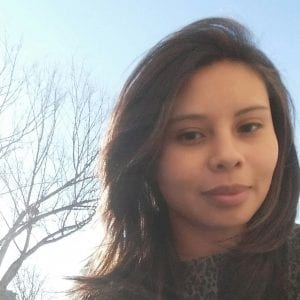 |
Natalia Moreno
I was an undergraduate student from the Universidad Nacional de Colombia performing a research internship as a part of Nexo Global 2016-I, a Colombian government initiative. My research interests focused on plant-animal interactions in tropical and agricultural systems. In the Poveda Lab I worked with Mary Centrella on landscape gradient influences in Osmia cornifrons fitness, and supported Rachele Weintraub’s research on potato overcompensation. |
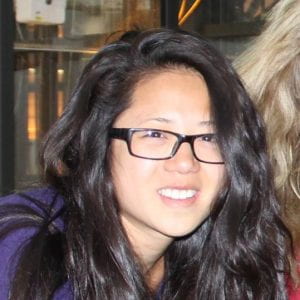 |
Rachel Au
Rachel joined the lab in 2012 and graduated in 2015. She did her undergraduate research on the effect of Colorado potato damage on the compensatory response of a Colombian potato variety. Her work focused on understanding how the effect of a leaf-feeding herbivore can affect yield and the resulting overcompensatory response. |
| Alena Hutchinson
Alena joined the lab in 2014 and investigated how changes in landscape complexity affect the size of native bees found in strawberry fields. |
|
| Miles Renauld
Miles joined the lab in 2015 and investigated how landscape simplification affects bee size. He found that an increase in landscape simplification leads to a reduction in bee size. His paper was published in PlosOne and is available here. |
Summer technicians & REU Students
| 2024
Technicians: Alan Mata, Afia Berkoh-Kyeremeh REU Students: Nathan Schuessler, Joshua Kwakye Minott 2023 Technicians: Arturo Santos, Yndia Van Herck REU Students: Justin Shade, Carter Oleckna 2022 Technician: Jenn Muson REU Student: Holly Meyers |
